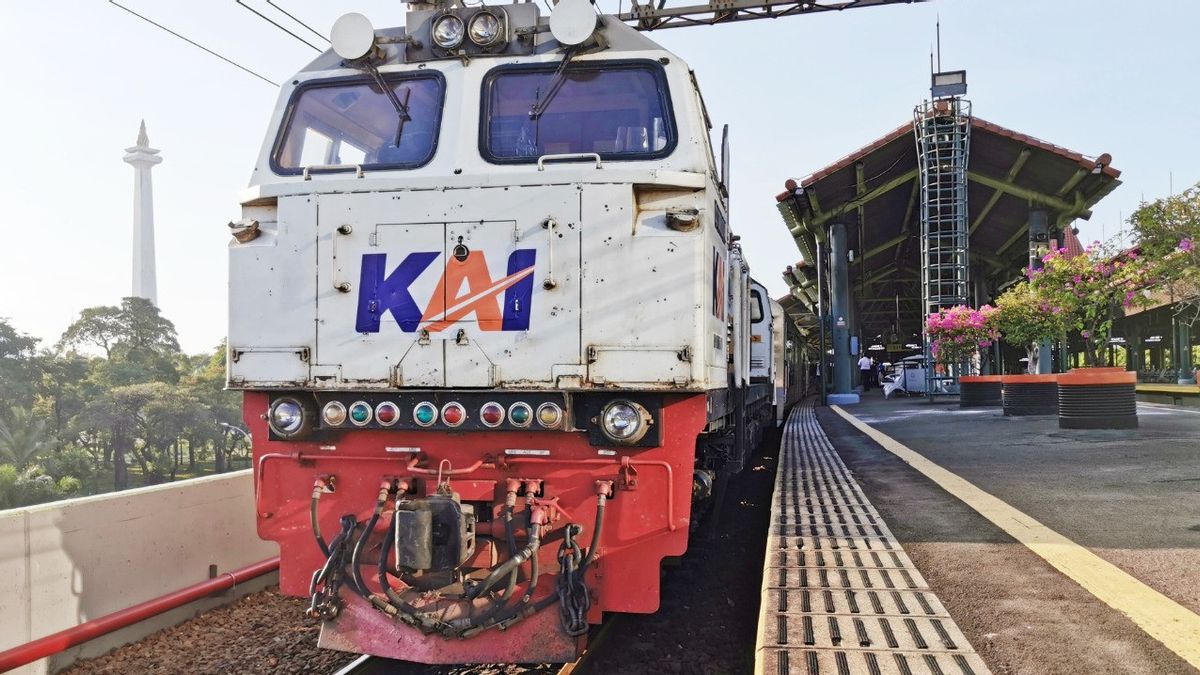JAKARTA - PT MRT Jakarta through PT Moda Integrasi Transportasi Jabodetabek (MITJ) is rumored to be acquiring 51 percent of PT Kereta Commuter Indonesia (KCI). The company acquisition was carried out in the context of developing a transportation integration system in Jabodetabek.
Finance Director of PT KAI, Salusra Wijaya, said that the acquisition plan had an impact on PT Kereta Api Indonesia (KAI). In this case there will be a significant reduction in passenger volume.
"The reduction in KAI passengers will significantly decrease, it could drop to 70 to 80 percent," he said, in a Railway Workers Union webinar entitled 'Integration or Acquisition', Jakarta, Wednesday, January 20.
Moreover, said Salusra, due to the COVID-19 pandemic, the railroad business from last year to this year is estimated to be sluggish. According to him, the subsidiary of PT KAI has greatly affected the company's performance.
"The year 2021 is not better (than last year), it is even threatened," he explained.
Salusra also revealed that to finance the company's current obligations, it had to apply for loans from outside. So, if the acquisition occurs, it will greatly affect the company's performance.
Not to mention the issue of subsidies from the government in the PSO (Public Service Obligation) agreement. PT KAI is also threatened with losing the PSO from the acquisition of PT KCI by PT MRT Jakarta. As a result, the company's finances will be even harder.
The volume of KRL passengers has plunged 70 percent during 2020President Director of KAI, Didiek Prasetyo, said that KAI noted that the decrease in passenger volume reached 60 percent to 70 percent. The decline occurred at a very significant time when the government adopted a large-scale social restriction (PSBB) policy.
As for the details, during the strict PSBB period, namely in early April, the reduction in passenger volume occurred very significantly. Meanwhile, from May to June 2020, KAI noted the passenger volume was only 200 to 400 thousand.
According to Didiek, this was because the PSBB policy made trains only allowed to be filled with a capacity of 35 to 40 percent of normal conditions. In fact, before the COVID-19 pandemic in the January to early March period, the volume of KRL passengers was recorded at 1 million to 1.1 million.
Then, when the transitional PSBB was implemented from 8 June to 13 September 2020, KAI also noted that the average passenger volume was only 200 to 400 thousand per month.
"Right now (January 2021) has decreased slightly but it is still in the range of 300 thousand to 400 in early 2021," he said in a webinar entitled 'The Presence of KRL Yogya-Solo', Tuesday, January 19.
Not only happened in Jabodetabek, Didiek said the decrease in passenger volume also occurred on the Prambanan Ekspres (Prameks) Train heading for Yogyakarta-Solo.
Didiek said, in January 2020 or before the pandemic hit, KCI transported 315,484 passengers. Then, there was a decrease at the beginning of the pandemic, namely in March 2020 to 202,910.
Then, when the study and work from home policy was implemented, his party recorded a sharp decline to only 33,168 passengers. At its lowest point in May, KCI was only able to sell 22,549 tickets.
Currently, Didiek admits, the KCI situation has gradually recovered, but the numbers are still far from normal. For example, in June-September 2020, there are only 54 thousand to almost 120 thousand passengers per month.
Meanwhile, at the end of the year, namely the October-December period, occupancy was only about 40 percent of normal, namely 140 thousand passengers per month for the three months. In fact, in normal conditions Prameks can transport 5 million people in one year.
The English, Chinese, Japanese, Arabic, and French versions are automatically generated by the AI. So there may still be inaccuracies in translating, please always see Indonesian as our main language. (system supported by DigitalSiber.id)













